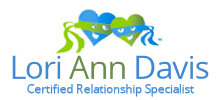 When two people have a very close relationship, it’s natural and mentally healthy to depend on each other for certain things. However, if one of you loses sight of who you are, in order to please only the other person, the relationship can become very unhealthy. One of the most troubling relationship elements is codependency.
When two people have a very close relationship, it’s natural and mentally healthy to depend on each other for certain things. However, if one of you loses sight of who you are, in order to please only the other person, the relationship can become very unhealthy. One of the most troubling relationship elements is codependency.
Working Definition of Codependency
“Codependency” is defined as an unhealthy relationship where partners are overly reliant on one another. As a result, a dysfunctional pattern of living and problem-solving develops between the two.
Questions to Ponder
Answer these questions to examine whether you might be involved in a codependent relationship:
- Are you afraid to express genuine feelings to your partner? If you notice you often hold in your feelings for fear of how your partner will react, that’s a sign the relationship is not as healthy as it could be.
- If you do express feelings honestly, do you then feel guilty? Perhaps you think “I shouldn’t have said anything… it just made matters worse” after you’re open with your partner.
- Is much of your day taken up with trying to do everything for your partner? If you’re completing numerous tasks for your loved one that could easily be done by them, you might be caught up in a dysfunctional, codependent relationship. These chores are done at the detriment of your own life.
- Are you leery of asking for help from your partner? If you can’t seek assistance from your partner, it’s very frustrating. In a healthy relationship, partners freely and regularly ask for a hand.
- When you do ask for help, how does your partner react? Hopefully, your partner is open and willing to help you out whenever you ask. However, if you’re codependent, you might not feel comfortable with asking or with your partner’s response.
- Do you find yourself feeling hurt or angry because your partner doesn’t notice your needs? Although you try to take care of everything, you’re disappointed that your partner does not spontaneously see what’s going on with you. You wait and wait for your partner to recognize your needs but they rarely do.
- Do you believe you can’t have a friendship independent of your relationship? Because you’re busy doing chores and errands for your partner and he’s rarely satisfied with how you do them, you don’t have time to maintain a friendship.
- Do you have hobbies and activities to enjoy separate from your partner? To maintain a healthy individual identity, it’s important to cultivate your own hobbies and interests, apart from the relationship. If you don’t, it could be a sign of codependency.
- Do you try to control things to make yourself feel better? Because you feel like you’re walking on eggshells, you don’t want to upset your partner. Therefore, you take steps to control situations however you can.
- Would you describe your partner as needy, emotionally distant, or unreliable? These qualities often draw in partners who are seen as “caretakers.” Thus, the codependency begins.
- Do you have a perfectionistic streak and try to get things exactly right? After all, if you get things perfect, then maybe your partner will be happier, more satisfied, and less angry, disappointed, or annoyed with you. If you feel this way, your relationship is likely codependent.
- Do you trust your partner? If so, maybe your relationship is not codependent. If you wonder what you’re partner’s doing or suspect they’re not telling you the truth about something, there could be codependency in your relationship. On the other hand, there may be just some trust issues you might want to resolve.
- How is your health as it relates to stress? Often, people involved in codependent relationships experience health issues that might be related to stress like asthma, allergies, out-of-control eating, chest pain, and skin disorders. Of course, if you experience any of these symptoms, it’s wise to see your doctor.
The good news is that if you believe you’re in a codependent relationship, you can begin altering your behavior right away to gain back a healthy sense of individuality.
Use these questions to guide you in correcting your behaviors and emotional expressions in your loving relationship. If you feel you need help, don’t hesitate to reach out. You’ll feel better and your relationship will be stronger when you can relate to each other in more positive ways.
Lori Ann Davis, MA, CRS
Certified Relationship Specialist
